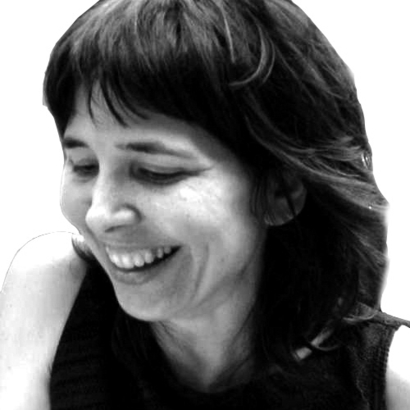“I never celebrate my birthdays,” Mikhail Baryshnikov says straight off when I show up to discuss his 75th. “A couple of years ago, I arrive at a close friend of ours. She says, ‘Happy birthday!’ I think, What? I know it is somewhere … maybe tomorrow.” But this year the legendary dancer-actor has reason to remember—and to make something of it.
That something—on June 25, on the idyllic grounds of the Kaatsbaan Cultural Park, in the Hudson Valley—is a reception for his latest painterly photographs of dancers in blurred motion, followed by a plein-air concert that features a handful of his famous friends: singer-songwriters Laurie Anderson and Regina Spektor, spooky and winsome, respectively; grisly Russian rocker cum anti-war dissident Boris Grebenshikov; jazz chanteuse Diana Krall; Silkroad Ensemble flautist and taiko drummer Kaoru Watanabe; and Baryshnikov bestie Mark Morris, not dancing but crooning.
The reason for the fête is not so delightful, but it is urgent. “We’re all recovering from Covid,” Baryshnikov notes. “The money,” needed for his much-loved eponymous arts center on West 37th Street in Manhattan, “does not pour in like it used to. There is not ‘Please take the money!’” The dancer assumes a beggarly posture, back comically hunched, hands cupped pathetically before him as if pleading for, not offering, alms. His birthday party will double as a fundraiser.

Since its inception, in 2005, the Baryshnikov Arts Center has presented Chilean post-anthropocentric, pro-vegetal theater; virtuosic forays into toy piano; flamenco that forgoes polka dots for leather pants; a chamber concert organized around the evening sun pouring like a benediction into one of B.A.C.’s gorgeous window-walled studios; and much more. Impeccably and imaginatively produced, gleaned from all over the world and in all manner of idiom, these shows tend to be magical yet down to earth, wise as well as innocent.
But that’s just B.A.C.’s public face. “Our main work,” Baryshnikov emphasizes, “is invisible: to provide the mechanics for theater directors, choreographers, musicians, composers, to be private—to be left alone. That’s the best thing you can do for an artist.” Each year, B.A.C. awards some 20 artists with residencies that grant them free studio time, honoraria, administrative and technical help, and the reassurance that Baryshnikov, their genius kin, deems them worthy. To this end, the most famous figure in dance today—even after subsequent generations have come and gone—is spending the bulk of his time in the office.
He still moves—“a little bit. I warm up in the morning to liberal news shows.” Not exactly the “hour and a half in a dance studio working full out, sweating crap out of yourself ” to which he is accustomed. He still acts, in productions that invariably take a surreal turn once he signs on. “Directors want me to—not dance but use my sense of movement. That’s what makes it surrealistic, because people don’t usually move in this part of the play.” But even then, when he’s working at what most of us would consider his real job, he wants his staff to “keep me on a short leash.” Indeed, he prefers that shows take place at B.A.C. so his people “can go downstairs before the show and ask me something.”
Why such a willingness to administrate? Baryshnikov possesses some peculiarly plain notions about art-making. For example, when I ask what in his dance training has carried over to acting, he answers in a word: “stamina.” With some nudging, he adds: “You train yourself to pay attention to everything happening around you,” and to maintain that state of alertness for hours. But if the demands of art are simple, so too are what derails it. “I used to travel uptown to work with Alvin, then go to Paul Taylor, then Martha Graham, then Ballet Theatre, then City Ballet, then this, then that.” He wags his head right and left. “I’m spending so much time in subway and taxi.” B.A.C. grew out of commuter fatigue.
“The idea is we have one studio and a little office. When I am traveling, someone else will use it.” Someone became many someones, and “we finish up with all this.” He raises his arms overhead as if praying to a building about to collapse on his head.

Baryshnikov hasn’t been the only one with doubts. Just as the center was opening, he ended up at a gala dinner seated next to Trump. The conversation went like this:
Trump: You build also? You build small. What do you build, some kind of gallery? But I build big. You know who I am?
Baryshnikov: Yes, Mr. Trump.
Trump: Did you spend your own money?
Baryshnikov: Yes.
Trump: How much?
Baryshnikov tells him: pretty much everything he had in the bank.
Trump: That was stupid.
No, Baryshnikov tells me, “because people matched me.” His not-so-secret birthday wish is that they match him again.
“Mikhail Baryshnikov at 75: A Day of Music & Celebration” will be on at Kaatsbaan Cultural Park, in Tivoli, New York, on June 25
Apollinaire Scherr writes on dance for several publications

